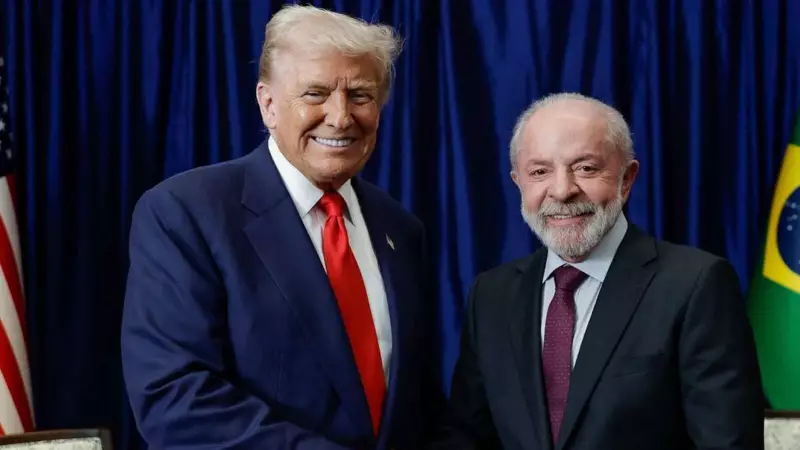
In a significant diplomatic development that could reshape Western Hemisphere trade dynamics, Brazilian President Luiz Inácio Lula da Silva has announced that trade talks with the United States will commence immediately following his crucial meeting with former President Donald Trump at the ASEAN summit.
A Turning Point in US-Brazil Relations
The high-stakes encounter between the two leaders marks a potential thaw in what has been a period of strained trade relations between the Western Hemisphere's largest economies. President Lula's declaration of immediate negotiations suggests both nations are ready to move past recent tensions and forge a new economic partnership.
The ASEAN Summit Breakthrough
The meeting occurred on the sidelines of the Association of Southeast Asian Nations gathering, where world leaders converged to discuss global economic and security matters. The Trump-Lula dialogue, though brief, appears to have yielded substantial progress toward resolving longstanding trade disputes that have hampered bilateral cooperation.
"The talks with the United States will begin immediately," President Lula stated emphatically after the meeting, indicating the urgency both leaders attach to normalizing trade relations. This announcement comes as both nations face economic pressures that make strengthened trade ties increasingly attractive.
Economic Implications for Both Nations
The renewed engagement holds significant promise for multiple sectors:
- Agricultural exports from Brazil to US markets
- Manufactured goods and technology transfers from US to Brazil
- Investment flows in infrastructure and energy sectors
- Technology cooperation in emerging fields
Trade experts suggest that successful negotiations could unlock billions in additional bilateral trade, providing economic stimulus to both nations at a time of global economic uncertainty.
Regional and Global Impact
The potential US-Brazil trade agreement carries implications beyond the two nations directly involved. As major players in their respective hemispheres, their cooperation could influence trade patterns throughout the Americas and potentially counterbalance growing Chinese economic influence in the region.
The timing of this breakthrough is particularly noteworthy, coming amid shifting global alliances and economic realignments. Both leaders appear to recognize the strategic importance of strengthening Western Hemisphere economic integration.
As negotiations prepare to launch, business communities in both countries are watching closely, anticipating that reduced trade barriers and clearer rules could create new opportunities for growth and cooperation across multiple industries.





